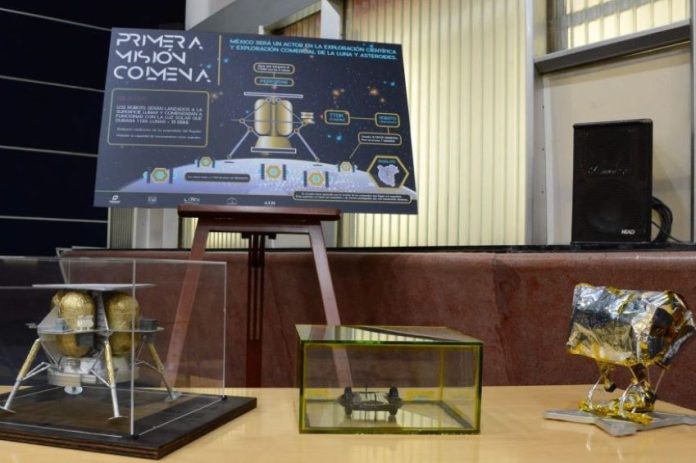The countdown has begun on Mexico’s first mission to the moon. The launch of a rocket that will include five Mexican microbots will occur on Jan. 8 in Cape Canaveral, Florida — as long as atmospheric conditions are right and other technical factors are in order.
Created by a team of Mexican scientists and nearly 250 university students, the microbots each weigh about 60 grams and are 12 cm in diameter — a tad smaller than a standard saucer for a coffee cup.

On the moon, the bots will recognize one another, connect electronically and then assemble a panel that can generate energy. The project is dubbed “Colmena,” which means beehive in Spanish.
“This project will make history and is the first of its kind in Latin America,” Salvador Landeros, director of the Mexican Space Agency (AEM), said in a Dec. 22 press release. The project “speaks very well of Mexico, confirming once again that Mexican engineering is at the level of the best in the world,” he added.
The project is part of Mexico’s participation in the Artemis program, led by the United States’ National Aeronautics and Space Administration (NASA) in conjunction with six other space agencies around the globe. Formalized in late 2022, Artemis also includes emerging space programs in countries such as Brazil, South Korea and Mexico.
The Mexican microbots were developed in the Space Instrumentation Laboratory of the Institute of Nuclear Sciences (LINX-ICN), part of the National Autonomous University of Mexico (UNAM). Joint support has come from the AEM, the National Council of Humanities, Science and Technology (CONAHCYT) and the central Mexican state of Hidalgo.

“Developing our own technology is a necessity for the country,” said Gustavo Medina Tanco, head of LINX. “We need to not be just consumers, and transform the country into an actor with technological sovereignty.”
The microbots will travel inside Peregrine, a lunar lander developed by Pittsburgh-based space robotics company. Peregrine, the first private U.S. spacecraft to be launched as part of NASA’s Commercial Lunar Payload Services program, will also carry some 20 other NASA and commercial payloads.
The lander has been fueled and mated with the United Launch Alliance’s Vulcan Centaur rocket on the launchpad. ULA is a U.S.-based aerospace manufacturer and defense contractor. A launch during the Jan. 8-11 window would set up a landing as early as Feb. 23. The lander will not go directly to the lunar surface, but rather enter the moon’s orbit and wait for the lighting to be correct for landing.
The Mexican team had hoped to send its tiny robots into space in 2022, but delays occurred, including a scrapped launch earlier this month due to an interrupted “wet dress rehearsal.” After communicating and setting up power, the UNAM gazette reported last year, the robots will begin taking measurements that have never been taken before, including lunar plasma temperature and the size of particles floating just above the moon’s dusty surface.
